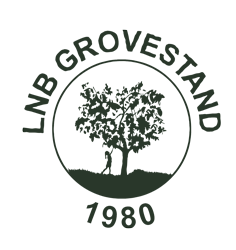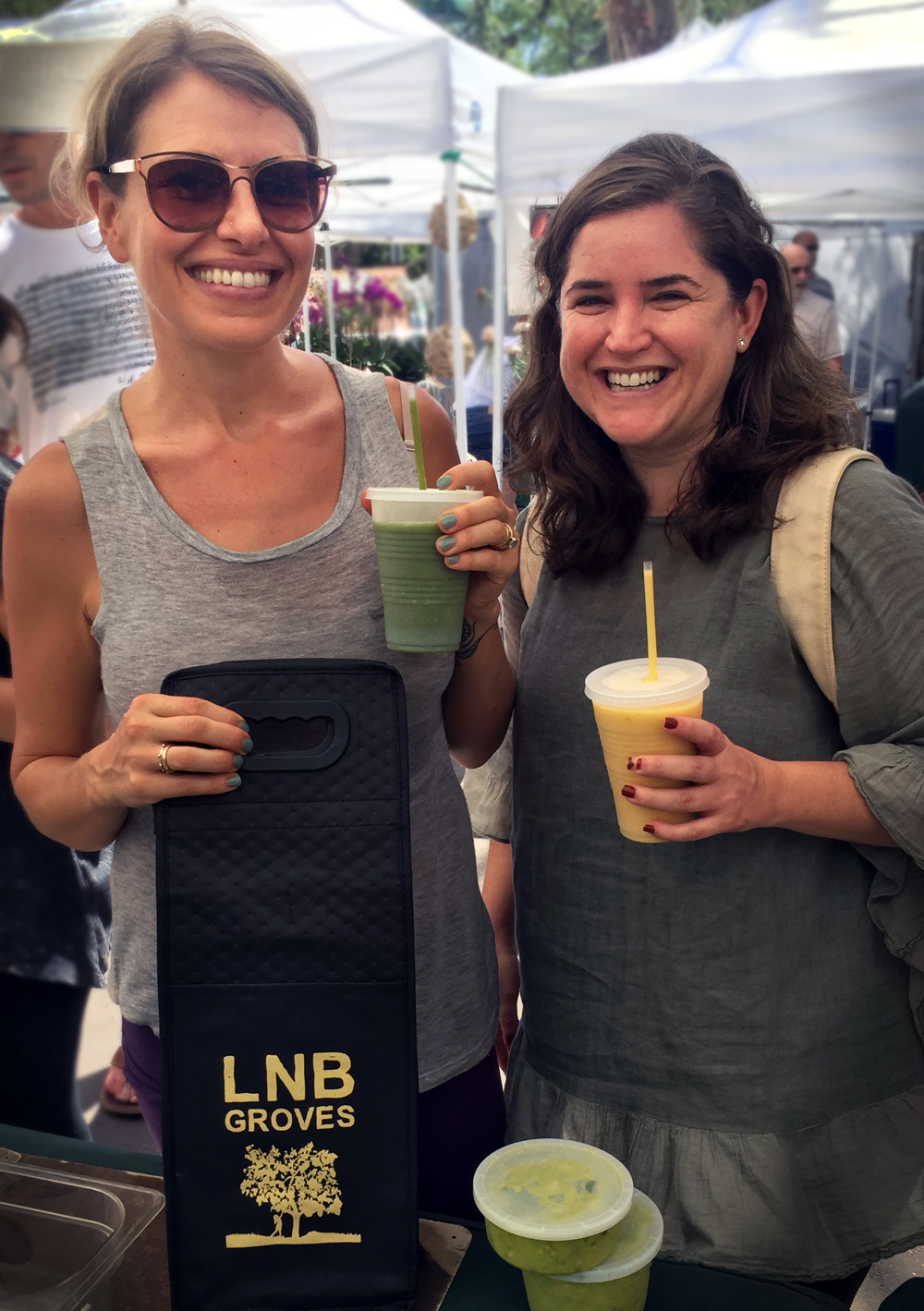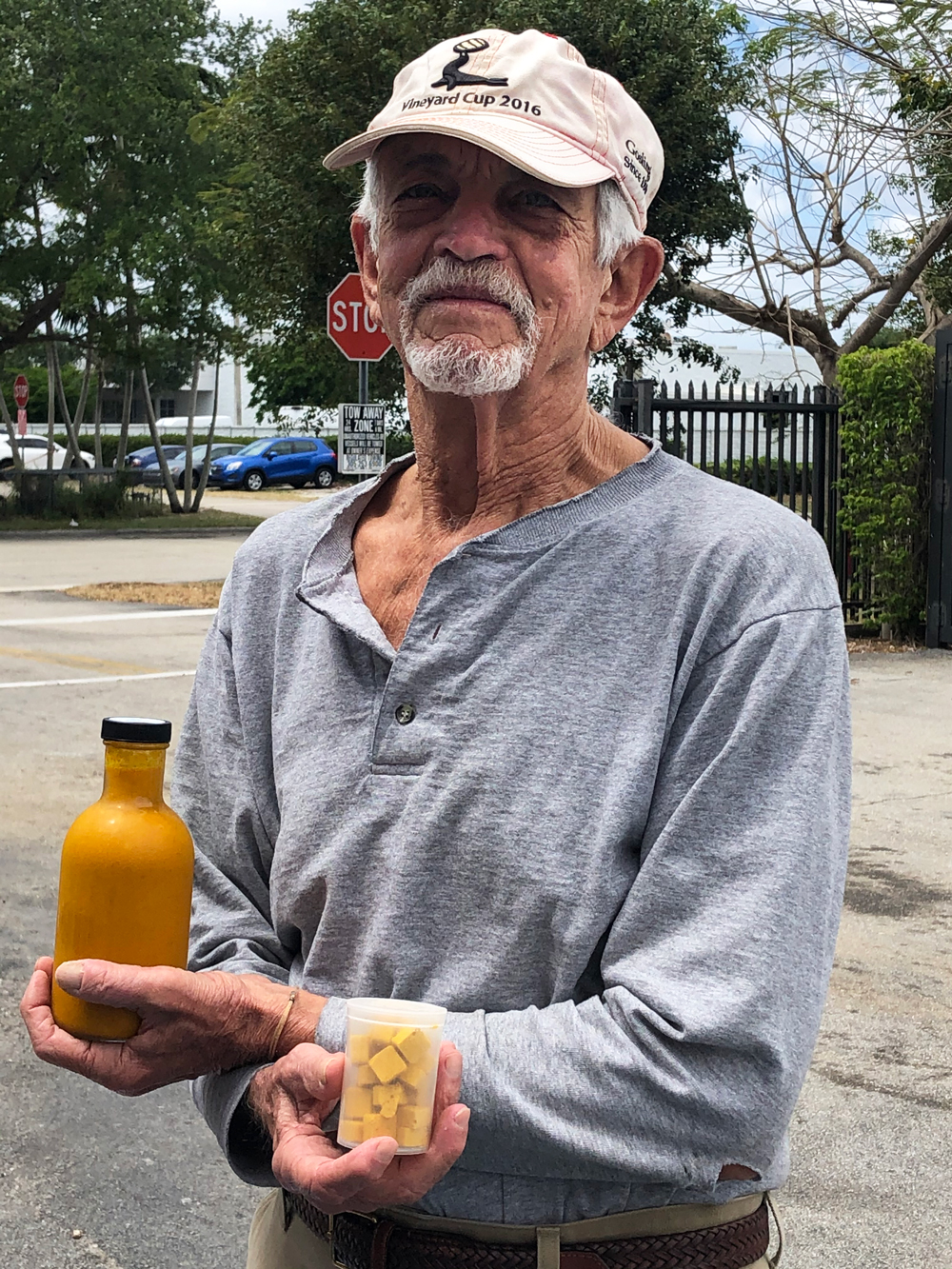
Ricky
Name:
Ricky
In what part of town do you live?
Our street is one of the dividing lines between the unincorporated Miami-Dade and Coral Gables.
How long have you lived in the area?
I’ve lived in Miami since 1968.
Would you share a little bit about yourself?
I’m retired now. I just turned 80 a few days ago, which is very surprising. I’m a retired judge. I was a circuit court judge for 26 years and I retired in 2006. I do some arbitration work. We spend about six months here in Miami and the other part is in Martha’s Vineyard or in Spain at Skip’s house. We haven’t been able to go to Spain for more than a year now because of COVID.
Why was turning 80 surprising?
It’s hard to feel 80. In my head, I don’t really feel like I’m 80. When I turned 50, I had a big party and I realized the future was going to be shorter than the past, and of course it keeps closing in on you.
What advice would the 80-year-old you give the 50-year-old you?
Keep going, keep doing what you like to do and what pleases you and what you think makes you a better person. You have at least 30 more years. You can feel accomplished and do a lot in 30 years.
What did you enjoy about being a judge?
Oh, many things. It was always a quite a challenge. I was in different divisions, so that was good too. I was in the family division for a short time, and then I was in the criminal division – although I hadn’t practiced any criminal law as an attorney that was so that was very daunting. Then I went into the general civil division and back and forth. There was always something new happening. And, each case is like a drama – of course, it was very real for the people involved. I really enjoyed the jury trials. I found it fascinating to see how the jury resolved the various disputes.
When you moved from being an attorney to a judge, was it like peeking behind the curtain?
I didn’t really have a trial practice. I only had a few cases in court. Perhaps if I had been in the courtroom all the time, I would have been seen it in a different light from the other side of the bench. Since I wasn’t, the whole thing was really rather new to me. Also when I became a judge in 1980, there were very few women on the bench. By the time I left, it had really changed. Being a woman, I was probably a little more stern on the bench then my natural inclination. I think that women frequently feel you can’t be very emotional because then they’ll say, ‘well you’re just acting like a woman.’ I had a couple of funny experiences with lawyers who would actually address me as honey or something totally inappropriate. I always had a few words to say, if that did happen, but it didn’t happen very often.
From a judge’s perspective, what makes a good attorney?
The first thing that came to my mind was honesty about everything. Making clear what their argument is, and if they know a case that is against their position to disclose that. Then I would say preparation. And, being considerate.
How did you become a judge?
There’s a judicial nominating committee made up of mostly lawyers and some non-lawyers chosen by the governor. Then the governor would make the selection and you would have stand for election. So, every six years I was up for election, but I never had an opponent, that was fortunate. But still when the term was expiring, you’d have to have committees to support you and do some fundraising. I think it’s a very problematic system because you have to fundraise and the ones who would mostly give were the lawyers who appear before you. Luckily every time I was up for election, if I did raise money, I would return it because I didn’t have any opponents.
Doing arbitration work now, do you feel less bound by the legal restrictions of the court?
It’s quite different. Arbitration is conducted similarly to a trial with witnesses and testimony and evidence, however it is designed to be more expedient and less costly than going to court. So, the rules are rather relaxed. Of course, you’re supposed to follow the law, but strangely enough – the ruling of the arbitrator is not appealable except in very limited circumstances, even if the arbitrators did not follow the law. The only basis for appeal of an arbitrator’s ruling, is if you can show the arbitrator was biased in some way.
Outside of the arbitration, what keeps you busy?
I do a lot of exercising. I love Pilates and yoga and Barre classes. Before COVID, I used to go to the gym all the time for classes. I enjoy seeing my grandchildren. I have two granddaughters. I have one daughter and she has two daughters. They live in Washington DC, and clearly I haven’t been able to see them that much in the last year or so. I was doing some remote teaching for one of her girls last spring. I had my whiteboard here and she was on my iPad. She said, ‘no one else’s grandmother is helping them with math.’
You’ve been coming by our stand for many years. Tell us a little bit about how you discovered us and what keeps you coming back?
I discovered you at the Pinecrest Market. We started drinking your turmeric. The ‘magic elixir’ according to the New Yorker cartoon last week. That’s the main thing that keeps us coming.
What other restaurants or places do you enjoy?
We’re members of the Coconut Grove Sailing Club and there’s a restaurant there and it’s so beautiful that it wouldn’t even matter what food they were serving just to be there and looking out over the water is lovely. We have a little sailboat there. That’s really nice.
What is Miami’s best kept secret?
Really, it’s the Barnacle, which I know Skip mentioned too. That’s where we had my birthday party last weekend. Most of the people that came to my party had never been to the Barnacle. Many have lived here all their lives and passed by the entrance a million times. They have live music on Friday nights, but it’s restricted to 50 people. Bring a blanket or chairs and a picnic and enjoy it that way. They also have movie nights and yoga classes. You should definitely go.
For you, what is a worthy splurge?
Going on a special trip. I’ve had a lot of adventures in my life. I’ve had several different marriages, I was widowed twice had three different husbands and now Skip. I do have to correct something that he said last week, because he referred to me as his wife and we are like husband and wife, but we’re not actually married. It’s like we’re married, and sometimes say we’re married.
What adventures comes to mind?
My first adventures would have been with my first husband who was a major civil rights leader. I met him when I was in college at Sarah Lawrence. We had a conference on civil rights and organizing and he was one of the main speakers. We went to the Martin Luther King speech in Washington. We went from Selma to Montgomery. I wasn’t in the Selma part, but I was in the Montgomery part. He was the head of SNCC, the Student Nonviolent Coordinating Committee before John Lewis. Being married to him and being with him was a major adventure.
What have you learned about marriage?
All my marriages were quite different from each other. It’s hard to even think of them as the same thing. My daughter at my party Saturday, made up this poem about me and talking about my different husbands. It was very amusing, because she could see how different they were as well. I’m in favor of marriage.
Last week, Skip suggested we ask you how you met?
We met many years ago. Skip was a friend of my second husband, my daughter’s father. We went to visit Skip in Spain at his house. He was married to Sue and had three children. It’s very strange in a way, because now I’ve been there many times with Skip – of course it’s the same place, but it seems very different. 13 years ago, we got together again. We had a mutual friend who was dying from cancer and we were visiting him at the same time. I was a widow and he was divorced and so things were good. It’s been really wonderful to know someone for that long and know them through different parts of their lives, and to know their children when they were little. I really adore his three children and his grandchildren and he gets along really well with my daughter. So it’s been special.
What community groups or philanthropic groups are important to you that you might like to promote your share?
I’m a big fan of public radio. I support WLRN, which is our local affiliate. I also give my support to Sarah Lawrence College. Also, there’s a group that I find important called Americans for Immigrant Justice that gives legal support to mostly immigrant children. And, there’s a wonderful music organization called Miami Music Project. They teach classical music to inner city kids. The program is transforming.
What question would you like to ask us?
(RS) Are you thinking of other products to make with your turmeric? I know you’re doing the bagels, which Skip really likes. Are you thinking of anything else?
(A+W) We started shipping our Freeze-Dried Turmeric Cubes last week. We have been looking for a way to make our turmeric concentrate shelf stable and shippable without adding preservatives. Freeze drying was the answer. You mix the cubes with water, and like magic, it becomes the turmeric concentrate. Side by side, we cannot tell which is the original concentrate and which was made from freeze dried cubes.
(RS) That is so great. Will you ship it to us in Martha’s Vineyard? Do you have to keep it cold?
(A+W) We are ready to ship. The cubes are shelf stable. Once you mix your concentrate, keep it in the fridge just like the one you get at the market.
Is there a question, words of advice or a challenge that you would like to pose to the community?
I would say, please get vaccinated. I wish I knew how to convince people who are against getting the vaccine. I hope that we can all work together and try to get to the other side of this.
Related Posts
Leave a Reply Cancel reply
You must be logged in to post a comment.



